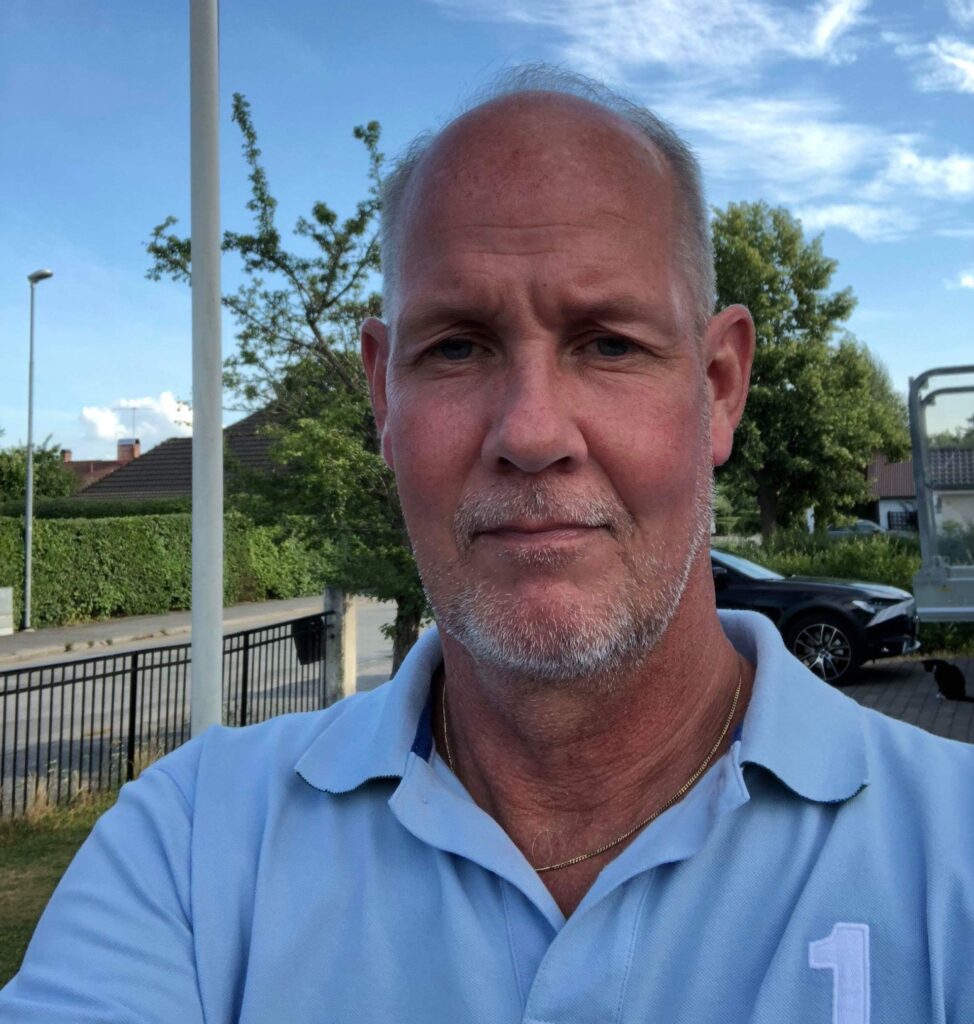
This month we spoke with Peter Svensson, member of the ELF Sarcoidosis Patient Advisory Group (PAG).
I am 61 years old and live in Sweden. In June 2023, I decided to retire from my role as a chief executive officer (CEO) after being diagnosed with sarcoidosis. My career was fulfilling as it allowed me to travel around the world. I had many hobbies such as playing golf and football, but I have been unable to continue these activities over the past 2 years due to my symptoms.
Although living with sarcoidosis can be challenging at times, I do not let it stop me from getting involved in other activities. I am passionate about cooking, and I often cook meals for my wife at home.
I was diagnosed with sarcoidosis early in 2023 after living with a dry cough for a year. During that time, I had lots of blood tests and tissue sampling to detect the condition.
Sarcoidosis can cause inflammation in a range of organs, but my lungs and eyes were mainly affected. The patches in my lungs are now starting to get smaller but I still experience a range of symptoms, including painful joints, numbness in my feet and hands and dental issues due to extreme dry mouth.
Living with sarcoidosis means that I am often extremely tired in the mornings and afternoons. Because of my symptoms, I must plan my activities carefully and decide when I have the energy to do things like go to the gym and shopping.
Sarcoidosis is a rare disease, and many healthcare professionals still have a limited understanding of how it affects a person’s quality of life. However, it is important that those diagnosed with sarcoidosis can find reliable information and support. There are many forums on social media where people with sarcoidosis can share their experiences and learn how to manage their symptoms.
Patients often become their own ‘project leader’ when it comes to understanding their condition. It can help to have contact with different doctors and healthcare departments to better understand the disease, but you may find that you sometimes have more knowledge about sarcoidosis than professionals.
A lot of the time when people hear that you are living with a chronic lung condition, they say “you don’t look sick!”. Many people have not heard about sarcoidosis or realise how much it impacts those living with it.
By getting involved in the ELF Sarcoidosis Patient Advisory Group (PAG), I try to educate people about the disease and advocate for better awareness. The group works in different ways, from contributing to social media campaigns to sharing information online, as well as providing updates for our new PAG page. Some of our members recently shared their experiences of living with the condition for ELF’s Rare Disease Day campaign.
I strongly encourage anyone living with a chronic condition to join a patient organisation and get involved in advocacy. Patient organisations play a vital role in connecting patients with researchers and other professionals. ELF has a unique relationship with the European Respiratory Society (ERS) that allows us to share our insights with their members and healthcare professionals. This ensures that research continues to meet the needs of sarcoidosis patients across Europe.
There is still a lot of research to be done around sarcoidosis and we all have an important role to play in raising awareness. In the future, we must prioritise funding for new sarcoidosis research, and I am excited to see how artificial intelligence (AI) can be used to speed up existing and future projects.
We are looking for new patient representatives to join our Sarcoidosis Patient Advisory Group! If you are passionate about advocating for people living with sarcoidosis, you can work with us to shape a better future for treatment and care.
Learn more